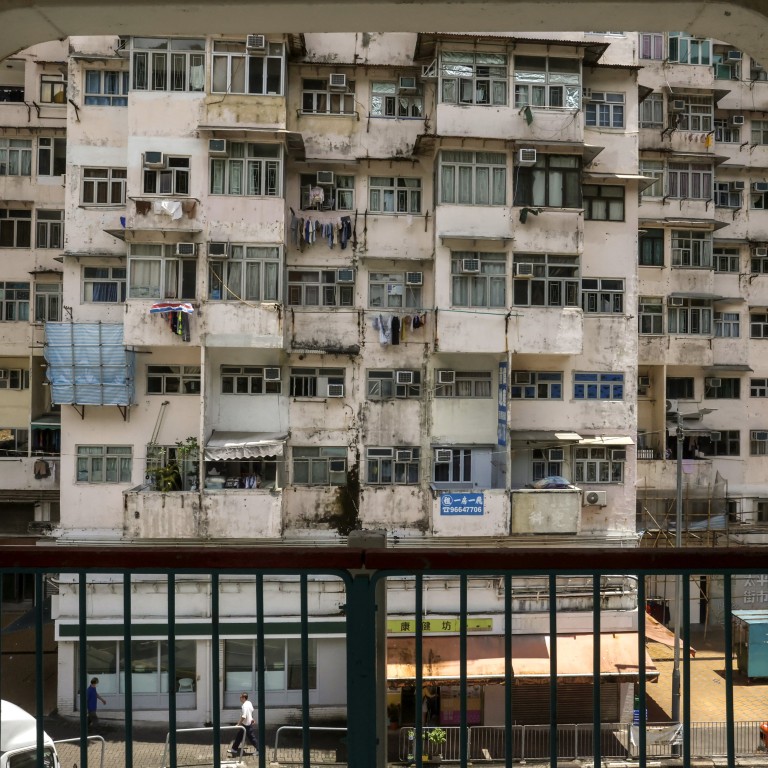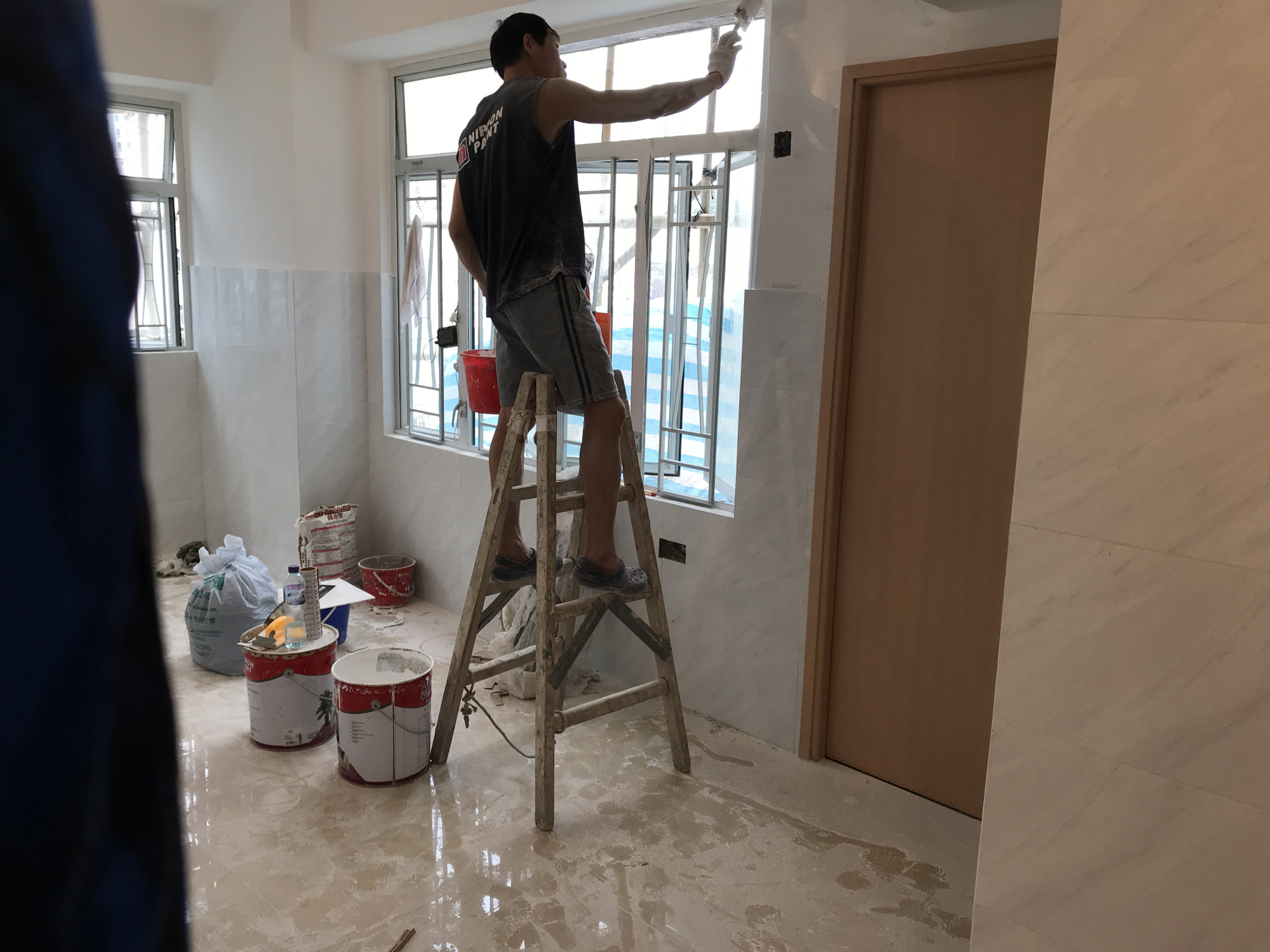
Shoddy work, aggressive tactics: Hong Kong home renovation industry needs accreditation system makeover, consumer watchdog says
- Consumer Council investigation finds home renovation trade prone to problems such as shoddy work and aggressive sales tactics, warns need for services expected to rise
- Industry representative calls on government to improve licensing application process, urges residents not to ‘cut corners’ in their choice of contractors
The consumer watchdog on Wednesday said the need for home renovation services was likely to increase as the number of domestic households in Hong Kong continued to rise, along with the amount of ageing residential buildings.
“Very often, the home renovation process is complex ... Most consumers lack the required experience and knowledge to handle the process. They often end up having no choice but to rely on traders’ expertise,” said Tony Pang Chor-fu, vice-chairman of the Consumer Council.

Of the 1,205 complaints related to renovation services that the watchdog received between 2017 and last year, 42 per cent concerned service quality, while nearly 28 per cent were related to delays or non-delivery issues. Other grievances included disputes over price, maintenance, sales tactics and contractual term changes or termination.
“The monetary amount involved for a home renovation project is usually substantial, while consumers have no control or knowledge over how the home renovation company uses the renovation payment,” Pang said.
“If the company goes out of business, the consumer will not be able to claw back the sums paid.”
Disputes were common, the council noted, adding the litigation process tended to be “time-consuming and frustrating”, with the total amount involved in the seven years between 2017 and 2023 exceeding HK$270 million (US$34.5 million).
Hong Kong’s leader vows to crack down on illegal structures after Post findings
The watchdog’s investigation, carried out last year, covered hundreds of stakeholders. It surveyed 505 consumers, interviewed 16 renovation businesses, analysed hundreds of advertisements and quotations, conducted dozens of operations where its staff posed as buyers, and consulted government and professional organisations.
The study found 93 per cent of survey respondents preferred to learn about businesses through word of mouth, while competitive pricing and company reputation were the deciding factors for more than 70 per cent of people when making their final choice of service providers.
While there was an abundance of online platforms to find providers, the public seemed to have little interest in using them, with 68 per cent saying they had never heard of such websites or apps.
Even for those who had knowledge of their existence, less than 10 per cent said they trusted the platforms over fears of having to face unscrupulous or aggressive sales tactics.
Hong Kong food delivery platforms charge up to 85% more for orders: watchdog
Up to 19 per cent of consumers also reported experiencing disputes with their contractors.
As for businesses, the watchdog found only about a third of renovators it studied were willing to provide a ballpark cost estimate before engaging further.
Some also used dodgy sales tactics, with Pang raising the example of one case where a company claimed in its advertisement that it offered zero deposit package services.
But when council staff reached out to the company posing as a potential customer, they were told the offer did not exist and was placed in the ad “by accident”.

It found 75 per cent of the businesses it approached made claims that walls could be removed just by looking at the unit’s floor plan without taking proper verification steps.
The watchdog offered four major suggestions for improving the industry, including adopting a standardised quotation template as well as a cost-effective and efficient dispute resolution system.
It also called for better efforts to educate the public so residents could be well-informed about industry practices, and for the establishment of a widely accepted accreditation system that consumers could trust.
“While registration or certification schemes of construction contractors currently exist in the public sector in Hong Kong, they do not primarily cater for home renovation projects,” said Senior Counsel Selwyn Yu Sing-cheung, chairman of the watchdog’s Consumer Protection Law and Policy Committee.
Exposing Hong Kong’s invisible land grab by owners of luxury homes
“On the other hand, such schemes in the private sector do target the wider consumer market, yet the application cost may be prohibitive for some companies, in particular those operating in the mid-range and lower-end markets,” he said.
Chau Lin-kin, chairman of the Hong Kong Renovations Practitioners Union, said the closest thing to an accreditation system at present was the Buildings Department’s minor works contractors licence for companies and individuals, which allowed those registered to carry out minor works without prior approval from authorities.
Applying for the licence is a lengthy process that requires proof of work experience and access to resources, as well as balance sheets and other documents. Applicants also need to attend a course beforehand.
Chau said that obtaining the licence had become “more difficult” in recent years as requirements were increasingly stringent and not enough classes were available, pushing many in the industry to operate without it.
Hong Kong’s ICAC charges 23 in largest case involving alleged renovations scams
He called on the government to make the application process more accessible and for other professionals, such as interior designers, to also be required to obtain the licence.
“Like with the case of the Tseung Kwan O flat [last year], the designer only wanted to make the flat look good, and obviously had no technical knowledge about the structure of the flat,” he said. “We need more people to know what they are doing.”
He also urged the public not to “cut corners” and instead opt for reputable renovators.
“Do your research and go for actual registered companies, don’t mindlessly use those offering services handing out pamphlets on the streets just because they’re cheap,” he said.
“They may charge less, but at the end of the day, if anything happens, you might not even have an office address to take your issues to when things go wrong.”
